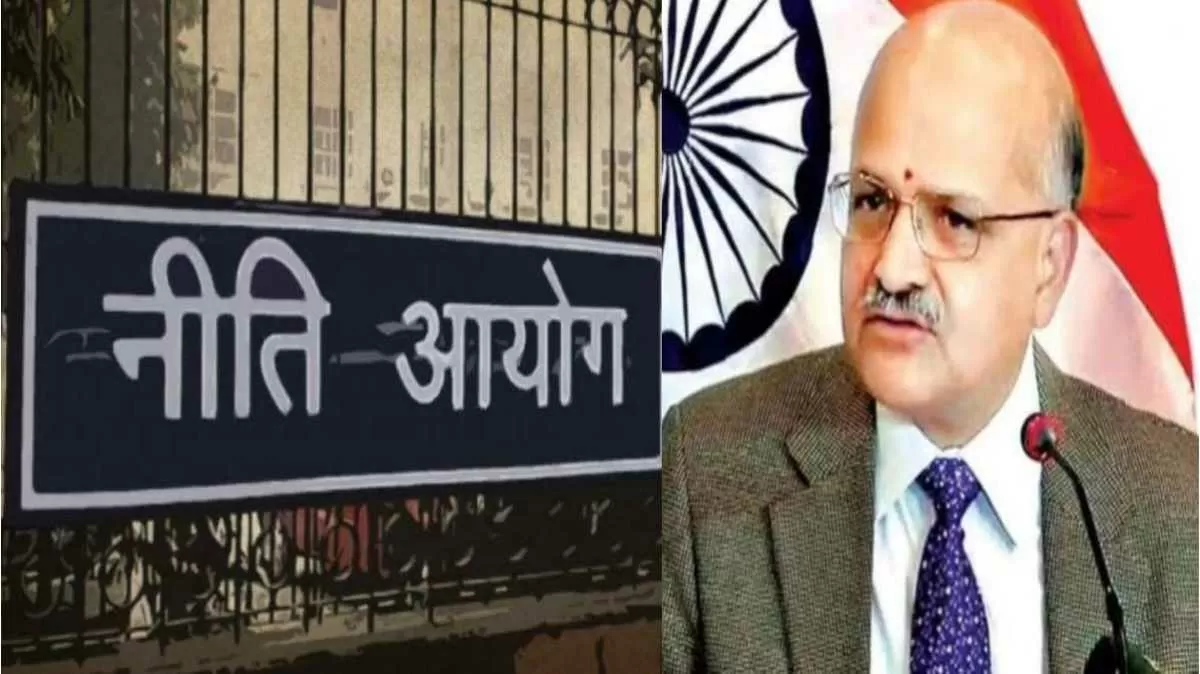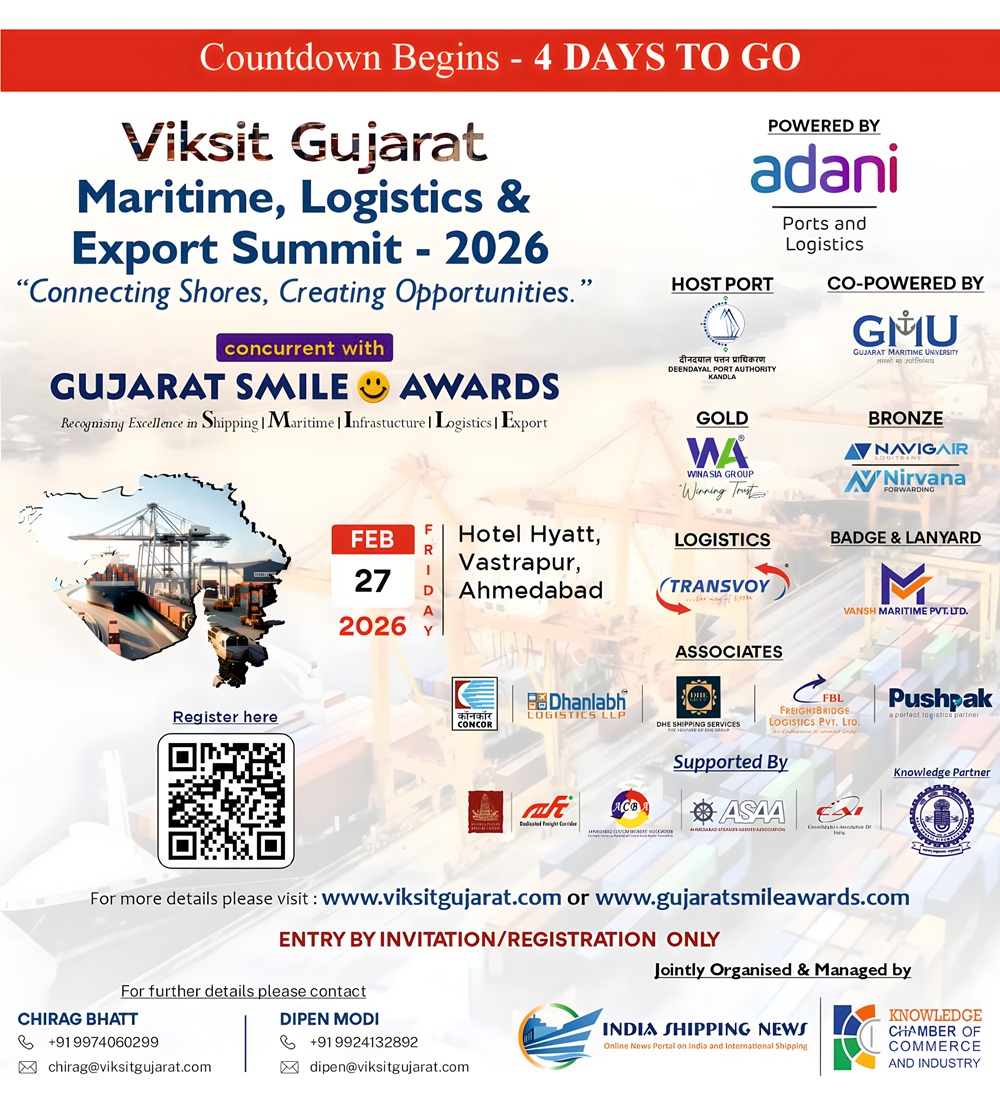
Growth must go hand-in-hand with sustainability : BVR Subrahmanyam
NEW DELHI : “The growth and rise of India is undeniable but it is happening in times which are very different. This is the first time in the history of mankind that a large country is seeking its future to be a developed nation, Viksit Bharat@2047, in an environment where climate change is an ever-present threat and technological changes like AI are not just minor disruptions,” said BVR Subrahmanyam, CEO, NITI Aayog at Connect Karo 2024, WRI India’s flagship annual event.
Speaking at the plenary session at Day One, ‘Pathways to Low Carbon Equitable Development in India,’ Subrahmanyam said, “This is one of the most challenging times for India. We have the challenge of growth, jobs and energy consumption which we have to balance with environmental considerations. It is no longer about growth or sustainability but growth and sustainability. And India’s commitment to addressing the issues is visible. If you see the Climate Change Performance Index, India is one of the top 10 nations, one of the few countries which is on track to meet its climate goals. And India’s success will be a model for other countries to follow.”
With large investments being made in energy, transportation, and urban infrastructure sectors, India is at the brink of major economic growth in the coming decades. As this transformation unfolds against the backdrop of global climate change and increased extreme weather events, this session focussed on strategies for achieving sustainable, resilient, and inclusive growth for everyone.
Subrahmanyam also highlighted that NITI Aayog is working towards developing pathways towards net zero, by creating roadmaps for supporting a green transition across sectors and developing sustainable economic plans for cities.
Connect Karo 2024 brings together Indian and global leaders committed to critical issues related to sustainable cities, clean energy, food, land and water, and climate action and finance. Held at the India Habitat Centre, the two-day convening is hosting more than 150 thought leaders, policymakers, financial experts, academics, scientists and civil society members to discuss the most urgent development and environmental challenges of our times.
The convening offers a diverse range of sessions, including expert panel discussions, interactive workshops and keynote addresses from renowned speakers, exploring themes like transformative urbanization and green development, with sessions on climate action, clean energy transition, food loss and waste, building healthy public spaces and safer streets, water security, heat mitigation, green skilling, eco-city regions, transit-oriented development, and much more.
Uma Mahadevan Dasgupta, Additional Chief Secretary & Development Commissioner, Government of Karnataka, who joined virtually on Wednesday, said, “We think of issues like waste segregation as an urban problem but it is also a rural issue. We have introduced initiatives in rural Karnataka where local bodies are now working with self-help groups for end-to-end waste management. This is ensuring a dignified livelihood for more women, leading to sustainable waste management and a model that can be emulated by other states.”
Speaking about the significance of the convening, Madhav Pai, CEO, WRI India, said, “This decade presents a significant opportunity for India to shape its large-scale infrastructure investments into a catalyst for a new climate economy. Such an economy will support India’s ambitious growth and development goals, fulfil the aspirations of its young demography and protect its most vulnerable citizens from the rising threats of climate change.”
He further added, “Collaboration is crucial for driving this collective effort. Events like Connect Karo bring together diverse stakeholders to exchange ideas and discuss new research that enables concentrated action.”
Key Initiatives and Research Papers Launched on Day 1 of Connect Karo:
* Working Paper | Jobs Near Metro Rail Transit in Bengaluru: Enabling an Accessible and Productive City: The paper highlights the critical need for a Transit Oriented Development (TOD) strategy to address the city’s severe traffic congestion, which hampers access to jobs and labor markets, workforce productivity, and overall competitiveness. This study also maps 2023 data on Bengaluru’s registered factories, shops and commercial establishments – to assess current job proximity and density along the city’s operational and under-construction metro network.
* Working Paper | Pathways to Decarbonize India’s Transport Sector: Scenario Analysis using the Energy Policy Simulator: The analysis reveals that electrification provides highest CO2 emission reduction potential by 2050 (53%), followed by fuel economy improvements (21%) and modal shift (18%) in comparison to the business-as-usual (BAU) scenario. When these three strategies are implemented simultaneously at their highest ambition, it results in 71% reduction in CO2 emissions through 2050.
* The Eco-City Region (ECR) Forum and ECR Microsite Launch: While the Forum will enable peer learning, multi-stakeholder dialogue, expert talks and collaborative initiatives aimed towards building ecologically resilient and economically productive city-regions, the microsite will serve as an online repository for critical knowledge resources covering work across six city regions.
* MoU for National-Level Project Preparation Facility (PPF) for Financing Climate Adaptation and Resilience (A & R) Projects in Cities: The National Institute of Urban Affairs (NIUA) and WRI India have entered into a Memorandum of Understanding (MoU) to establish a national-level project preparation facility. This initiative aims to offer early-stage support for adaptation and resilience projects across Indian cities. The platform will provide technical assistance for identifying, developing, and appraising climate adaptation and resilience (A & R) projects, to help cities prepare bankable and investible project proposals, thereby enabling better access to climate finance.
On Day 1, WRI India also showcased an exhibition on enabling innovation for public service delivery and climate action. The exhibition looked at innovation through the lenses of data-driven decision making, first practice projects, scaling finance and inclusive innovation through partnerships.
About WRI India
India Resources Trust, an independent charity referred to as ‘WRI India’, provides objective information and practical proposals to foster environmentally sound and socially equitable development. Our work focuses on building sustainable and livable cities and working towards a low carbon economy. Through research, analysis, and recommendations, WRI India puts ideas into action to build transformative solutions to protect the earth, promote livelihoods, and enhance human well-being. We are inspired by World Resources Institute (WRI), a global research organization.

